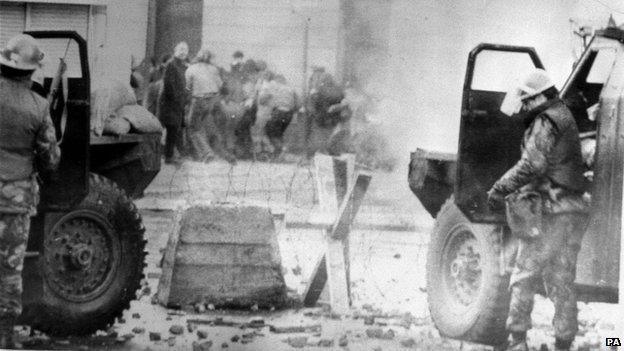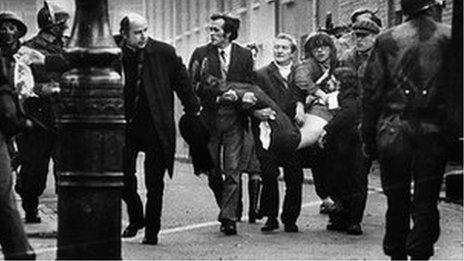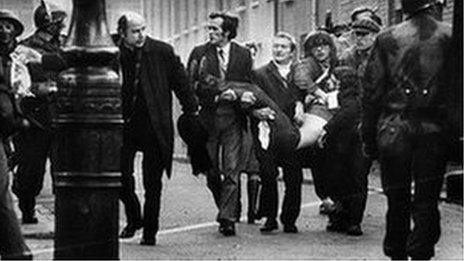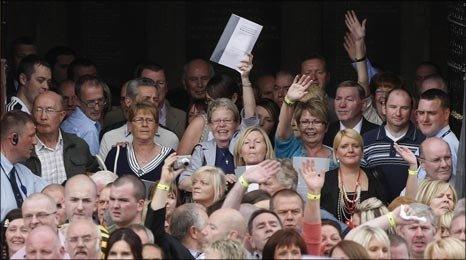Bloody Sunday investigation faces judicial review
- Published

Lawyers have called for a judicial review of scaling back the Bloody Sunday investigation team
The decision to scale back the police investigation into the deaths of marchers killed by soldiers in Londonderry in 1972 will be challenged in court by victims' relatives.
A judicial review has been requested into the proposal by Northern Ireland's chief constable George Hamilton.
Solicitor Peter Madden represents most of the Bloody Sunday families.
He said the chief constable was trying to "effectively end this multiple murder investigation".
"The murder investigation commenced in 2010 after the Saville Report," he said.
"In effect, that meant that Lord Saville indicated that there were murders on the streets of Derry on Bloody Sunday and as far as that investigation's concerned, it is not an historic case."
John Kelly, whose brother was shot dead on Bloody Sunday, said the chief constable should reactivate the investigation.
"Put it back in place again, because he had no right to stop this murder investigation," he said.
"This was a live murder investigation and I think it's the first time ever that a murder investigation has been stopped simply because of a lack of money. There is no lack of money, the money was there."
Kay Duddy, whose brother Jackie Duddy was the first person shot dead on Bloody Sunday, said it was "ridiculous" the relatives were having to consider a court challenge.
"Time is passing on, we have already handed this on from one generation to another, we are now the second generation having to deal with this and the last thing I want to do is to have to possibly hand it on to the next generation," she added.
Most of the Bloody Sunday investigation team is to be laid off in the wake of £50m cuts to the policing budget.
John Kelly said George Hamilton had "no right" to stop the investigation
Chief Constable Hamilton has said his priority had to be policing the present.
The Historical Enquiries Team, which reviews unsolved Troubles killings investigations, is also due to close as part of the cuts.
Speaking at the Policing Board last week, Assistant Chief Constable Will Kerr said: "We just don't have the money to be able to employ the people that give us that flexibility, particularly round these types of investigations.
"That means we're going to have to increasingly use police officers of today, that means they won't be able to do something else and that's when it comes to having to prioritise the use of current-day resources against lots of risks today."
Paratroopers opened fire on a civil rights marchers in January 1972. Thirteen people were killed and 15 others were wounded.
The 2010 Saville Report concluded that soldiers from the Parachute Regiment opened fire first, and Prime Minister David Cameron said in Westminster: "I am deeply sorry".
A fresh police investigation was opened after calls from families to investigate the actions of troops involved.
Clarification 9 April 2019: This article was amended to remove a reference to the death of John Johnston. This reflects the Bloody Sunday Inquiry's finding about Mr Johnston's death several months after he was wounded in Derry on 30 January 1972. The inquiry report states that his death was "not the result of any of the wounds he sustained on Bloody Sunday".
- Published3 October 2014

- Published30 January 2014

- Published15 June 2010
